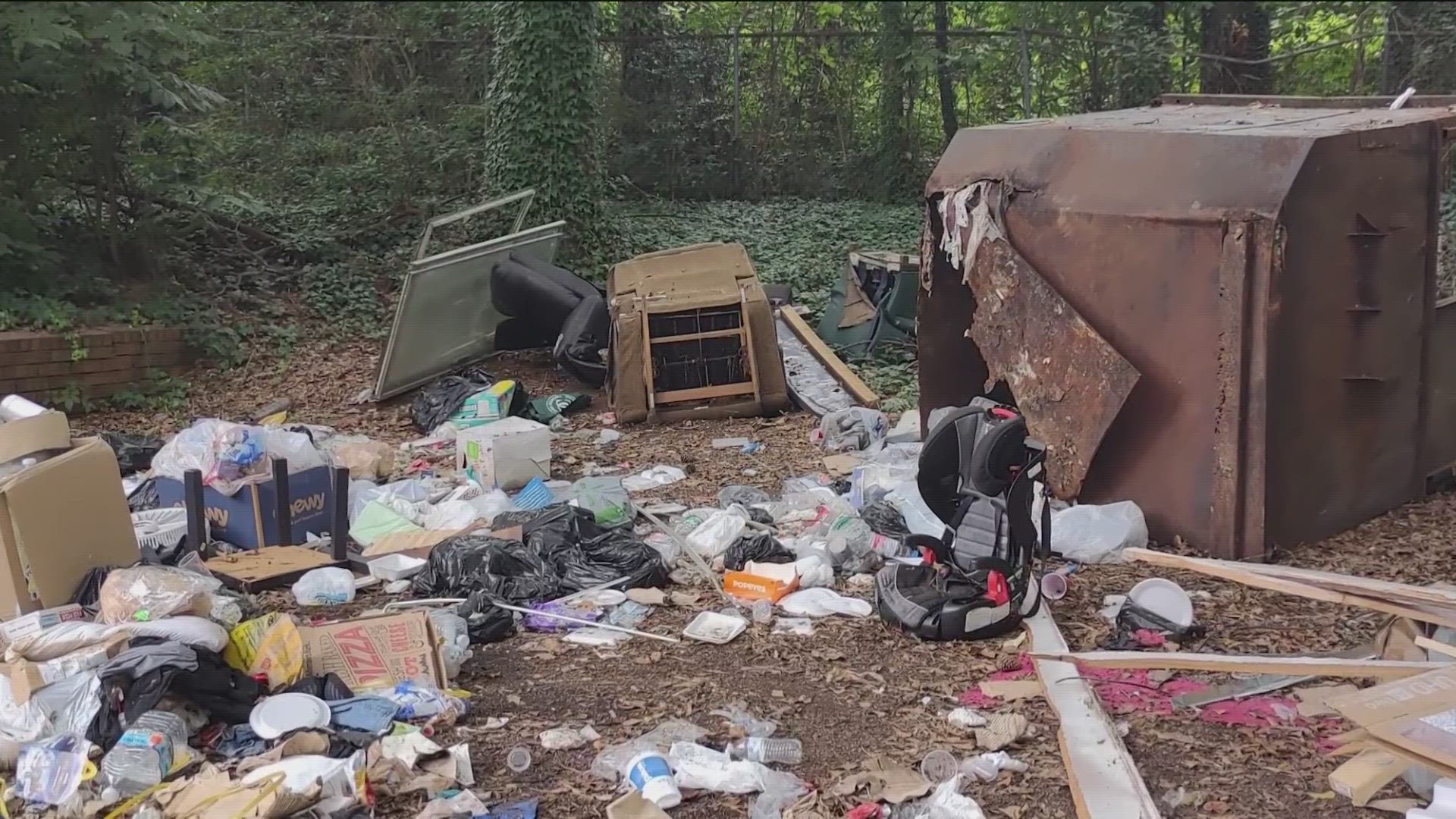ROSWELL, Ga. — Latysha Odom felt hopeful when she moved into her Griffin apartment complex in 2019. More than four years later, she's survived leaks, a collapsed roof and a roach infestation, all of which traumatized her and her family.
"The last two years have been unbearable," Odom said. "It's day-to-day for me. I'm trying my hardest to get where I need to be, to get me and my kids out. It's not a choice. I'm not choosing to stay there, because if I had the means to I would leave. So it's pretty bad."
Odom said management has largely been unresponsive, and she feels stuck. Odom and other mothers testified in Roswell Monday before Sen. Jon Ossoff (D-GA), detailing the disturbing conditions they've lived in for years. Ossoff is leading a U.S. Senate Human Rights Subcommittee inquiry into resident mistreatment and the impact on children.
"Children in Georgia and across the country are being subjected to unsafe, unfair, unsanitary living conditions by landlords who receive public funding," Ossoff said. "That's unacceptable, and it has to stop. This isn't about inconveniences; this could be life or death."
Ossoff said the Department of Housing and Urban Development, or HUD, should be more accountable in its practices and inspections.
"These landlords who receive taxpayer dollars have an obligation to ensure these homes are healthy and safe, but clearly, in too many cases, they're not," Ossoff said. "We have to understand what enforcement tools HUD has at its disposal that it may not be using adequately, whether or not the inspections HUD undertakes on these properties are sufficient, and how widespread this kind of alleged mistreatment is."
In a statement sent to 11Alive, HUD said the department is following up on all incidents identified to ensure immediate problems are addressed. It also said that the agency is committed to "ensuring that people living in HUD-assisted housing have safe, decent homes and that property owners manage assets responsibly in accordance with our rules."
"No one should live in de-humanizing and unsafe conditions," the statement read. "We will work with our performance-based contract administrator, the state agency, and local authorities as we ensure all program participants meet the requirements of our programs to provide housing that adheres to our standards."
Miracle Fletcher is a mother and cancer survivor. She testified that when she moved into her Atlanta apartment complex, it wasn't long after that she heard loud noises emanating from her bathtub. That turned into massive flooding issues, and raw sewage started to seep into her home. She recounted that she spent four months dealing with daily backflows and unsanitary conditions.
When apartment management moved her into another unit, Fletcher said she had water heater issues and went weeks without hot water. Fletcher also said she feared retaliation from her apartment complex's managers, including threats of lease violations and eviction, because of her frequent reporting.
Amid testimony that feels all too familiar for many tenants, housing rights attorney Esther Graff-Radford said there is some recourse renters could take. She urged renters to put all repair complaints in writing, contact code enforcement and HUD if applicable, and seek legal options if necessary.
“It already takes an incredible amount of mental and emotional energy just to keep your family safe and their basic needs met when your floor is caving in," Graff-Radford said. "There’s mold in your apartment, sewage backing up everywhere, the ceilings are falling. Your children are developing phobias because of roach infestations. When a child cannot learn, cannot sleep, cannot eat or bathe safely because there’s sewage, rats, cockroaches and collapsing ceilings full of asbestos in their unit, and they need special accommodations in school because of what they’re going through, we pay for that.”
An emotional Latysha Odom said she felt grateful and relieved to testify and to know someone was listening to her pleas for help. Monday's hearing symbolized her courage to speak out and her demand for change, a quality home and a better life for her and her family.
"It’s hard for me because I’m a single parent; I don’t really have help," Odom said. "I can’t just pack up and go, and I don’t have anywhere else to go. Hopefully, a lot more people will hear what we're going through, and it'll probably help if a lot more people speak about what they're going through and shift the change to hold them accountable."

